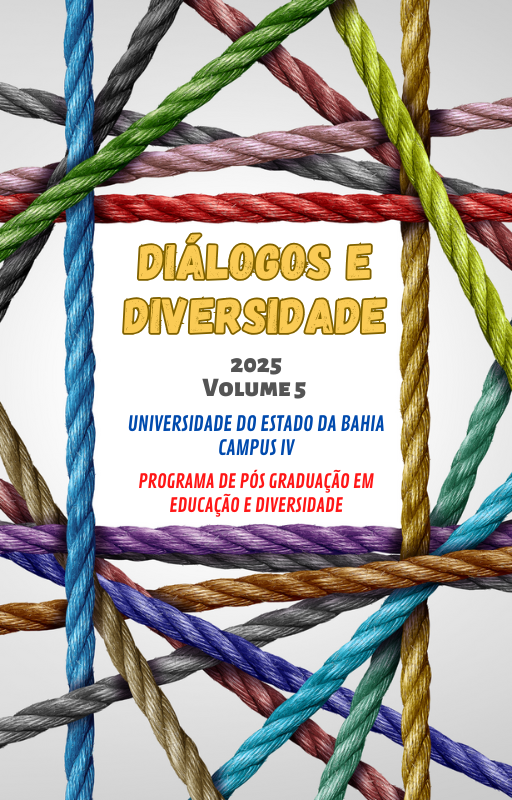The passivity of the student from the ideal of the curriculum and the teacher.
Keywords:
curriculum, teacher, student, educationAbstract
Reflection paper whose purpose is to show the non-existent active role of the student in his educational formation, thanks to the idealization of the teacher and the curriculum, product of a moral prejudice of the teacher and the projection of an ideal subject from the statutes set forth by the curriculum. The work is developed from a qualitative methodology and a hermeneutic approach. As a result, the discussion of this problem raises the possibility of solving the educational triad, composed by the teacher, student and content, or curriculum, from the recognition and transversal implementation of interdisciplinary knowledge areas, which support the knowledge and restore the reciprocity of the mentioned triad, from a holistic view that includes the cultural, economic, social history and the psychobiological development of the student.
Downloads
References
Campos, A. L. (2010). Neuroeducación: Uniendo las neurociencias y la educación en la búsqueda del desarrollo humano. . La educ@ción(143), 6 - 7. Obtenido de http://www.educoea.org/portal/La_Educacion_Digital/laeducacion_143/articles/neuroeducacion.pdf
Casimiro Lopes, A. (2006). Discursos nas políticas de currículo. Currículo sem Fronteiras, 6(2), 33-52.
Cuesta, R. (2021). Creaciones Prodigiosas: Disciplinas Escolares e historia del currículum. Revista interuniversitaria, 40(1), 61 - 79. doi:https://doi.org/10.14201/hedu2021406179
Didou Aupetit, S. (2000). Globalización y educación: Una interralación multifacética. Revista Latinoamericana de Estudios Educativos, 1(1), 67 - 87. Obtenido de http://www.redalyc.org/articulo.oa?id=27030103
Fernandes de Macedo , E., & Silveira da Silva, M. (2022). A promessa neoliberal-conservadora nas políticas curriculares. Revista Educação Especial, 35, 2-20. doi:http://dx.doi.org/10.5902/1984686X71377
Gadamer, H. (2002). Hermenéutica: Teoría y Práctica. En Acotaciones hermenéuticas (págs. 13-23). Madrid: Trotta.
García Moreno, L. M. (2002). Psicobiología y educación. Revista Complutense de Educación, 13(1), 211-227. Obtenido de https://redined.educacion.gob.es/xmlui/bitstream/handle/11162/126308/17532-17608-1-PB.PDF?sequence=1
Martínez-Novillo, J. (2016). Cómo juzga la escuela a las familias. Revista de la Asociación de Sociología de la Educación -RASE, 9(3), 385-396. doi:doi: 10.7203
Ricoeur, P. (2008). Hermeneutica y crítica de las ideologías. En Hermeneutica y Acción (págs. 147 - 185). Buenos Aires: Prometeo.
Rojas León, A. (2014). Aportes de la sociología al estudio de la educación (Autores clásicos). Revista Educación, 38(1), 33-58. Obtenido de https://www.redalyc.org/pdf/440/44030587002.pdf
Rujas Martínez, J. (2017). La construcción del «fracaso escolar» en España.Génesis y cristalización de un problema social. Papers: Revista de sociología, 102(3), 477-507. doi:http://dx.doi.org/10.5565/rev/papers.2297
Rujas Martínez, J. (2022). Las categorías del juicio escolar en secundaria y la producción cotidiana del fracaso escolar. Revista Española de Sociología (RES), 31(3), 1 - 17. doi:https://doi.org/10.22325/fes/res.2022.120
Sampieri, R. (2014). El proceso de la investigación cualitativa. En INTERAMERICANA (Ed.), Metodología de la investigación. (sexta ed., págs. 355 - 365). México: McGRAW-HILL.
Torres Santomé, J. (1987). La globalización como forma de organización del currículo. Revista de Educación(282), 103-130. Obtenido de https://redined.educacion.gob.es/xmlui/bitstream/handle/11162/71414/00820073002911.pdf?sequence=1
Tröhler, D. (03 de 04 de 2017). La historia del currículum como camino real a la investigación educativa internacional. Historia, perspectivas, beneficios y dificultades. Profesorado, 21(1), 202 - 226. Obtenido de https://www.redalyc.org/pdf/567/56750681010.pdf
Downloads
Published
How to Cite
Issue
Section
License
Copyright (c) 2024 Julián David Veloza Barajas

This work is licensed under a Creative Commons Attribution-ShareAlike 4.0 International License.
Direitos Autorais
A submissão de originais para a Revista Diálogos e Diversidade (RDD) implica na transferência, pelas(os) autoras(es), dos direitos de publicação. Os direitos autorais para os manuscritos publicados nesta revista são das(os) autoras(es), com direitos da RDD sobre a primeira publicação. As(os) autoras(es) somente poderão utilizar os mesmos resultados em outras publicações indicando explicitamente a RDD como o meio da publicação original.
Licença Creative Commons
Exceto onde especificado diferentemente, aplicam-se à matéria publicada neste periódico os termos de uma licença Creative Commons Attribution-ShareAlike 4.0 International License, que permite copiar e redistribuir o material em qualquer suporte ou formato, adaptar, remixar, transformar, e criar a partir do material para qualquer fim, mesmo que comercial, dando o crédito apropriado, prover um link para a licença e indicar se mudanças foram feitas, distribuindo as suas contribuições sob a mesma licença que o original, não podendo aplicar termos jurídicos ou medidas de caráter tecnológico que restrinjam legalmente outros de fazerem algo que a licença permita.



 Esta obra está licenciada com uma Licença
Esta obra está licenciada com uma Licença 